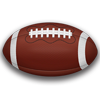LONDON, England — Another Premier League weekend, another VAR controversy. This time, it was Newcastle United who found themselves on the right side of a contentious call in their 0–0 draw with Brentford, after referee Stuart Attwell opted not to award a penalty for what appeared to be clear contact between Dan Burn and Dango Ouattara — leaving former Arsenal star Perry Groves utterly astonished.
The flashpoint arrived just before the hour mark at the Gtech Community Stadium. With Brentford pushing for a breakthrough, Ouattara darted into the box and looked to cut inside Burn, only to tumble to the turf under a trailing leg from the Newcastle defender. To the shock of Brentford players and fans, Attwell immediately booked the forward for simulation, judging that Ouattara had gone down too easily.
The decision went to VAR review, with Paul Tierney in the booth, but the outcome remained the same: no penalty, and a yellow card for Ouattara.
VAR Stands Firm — But Replays Tell Another Story
The Premier League Match Centre later released a statement defending the call:
“The referee’s call of no penalty and yellow card to Ouattara for simulation was checked and confirmed by VAR — with the challenge from Burn on Ouattara deemed to be minimal contact.”
However, replay footage appeared to show Burn’s left boot making contact with the top of Ouattara’s right foot as the forward surged past. The contact, though slight, was visible — sparking instant debate among fans and pundits.
Speaking live on talkSPORT commentary, Perry Groves couldn’t hide his disbelief.
“That’s incredible,” Groves said. “Dan Burn clearly catches the top of Ouattara’s boot. Yes, the lad’s exaggerated it — he’s gone down like he’s in Platoon — but there is 100 percent contact. You can’t book him for diving if he’s actually been fouled.”
The former Arsenal winger’s remarks reflected the frustration of many who felt the VAR team failed to follow protocol by not recommending a second look at the pitch-side monitor.
“Not Every Contact Is a Foul” — The Other Side of the Debate
Groves’ broadcast partner, Sam Matterface, offered a contrasting take, arguing that VAR had made the correct call under the Premier League’s current high threshold for overturning on-field decisions.
“Not all contact means a penalty,” Matterface countered. “The referee’s decision was that Ouattara dived. There’s a tiny bit of contact, yes, but that doesn’t justify the way he launched himself into the air. There’s no way the level of contact makes him jump up and kick his heels backward like that.”
Their back-and-forth quickly became a microcosm of the broader debate raging across English football: how much contact is enough to warrant a penalty, and when should VAR intervene?
Groves stood firm, insisting that contact — regardless of the theatrics — should have prompted at least a review.
“I’m not saying Ouattara didn’t exaggerate,” Groves said, “but Burn’s foot is on top of his. It’s a foul. For VAR not to tell Attwell to have another look is ridiculous.”
Matterface responded:
“It’s not a clear and obvious error, Perry. VAR can’t step in unless it’s clear-cut. The league doesn’t want soft penalties being given.”
Fans React: “Consistency Is the Problem”
The incident immediately went viral on social media, with fans divided — and exhausted — by yet another controversial VAR moment.
“VAR’s biggest issue isn’t technology, it’s consistency,” one fan posted. “That’s a penalty one week and a booking the next.”
Others defended the officials, pointing out that the Premier League has emphasized avoiding soft penalties this season. “If that’s a penalty,” one supporter wrote, “then every bit of contact in the box becomes one too.”
Still, even neutral observers found the optics troubling. A close-up replay clearly showed Burn’s foot brushing against Ouattara’s boot, which raised questions about how “clear and obvious” an error needs to be for VAR to intervene.
Groves Doubles Down: “It’s a Clear Error”
Groves wasn’t finished after the match, reiterating his stance that Tierney and VAR failed to do their job.
“Of course it’s a clear and obvious error,” Groves said. “The referee thought there was no contact. VAR’s job is to correct that. You’ve got the angle, you’ve got the evidence — tell him to look at it. That’s what the system is there for.”
Matterface pushed back again, citing the league’s new interpretation guidelines:
“If there’s contact but not enough to justify the reaction, it stays with the on-field call. That’s the bar VAR operates under now.”
The fiery exchange underscored the growing tension surrounding VAR’s influence in Premier League football. With fans and pundits alike losing patience, the debate over its application — particularly in subjective decisions like Saturday’s — shows no sign of ending soon.
The Takeaway
While Newcastle escaped with a draw and Brentford were left fuming, the real talking point remains the ongoing disconnect between referees, VAR officials, and viewers at home.
Groves summed up the frustration best:
“I guarantee you there’ll be penalties given for less contact than that this season. 100 percent.”
For now, though, VAR stands firm — minimal contact, no foul, and another weekend of controversy in English football.




